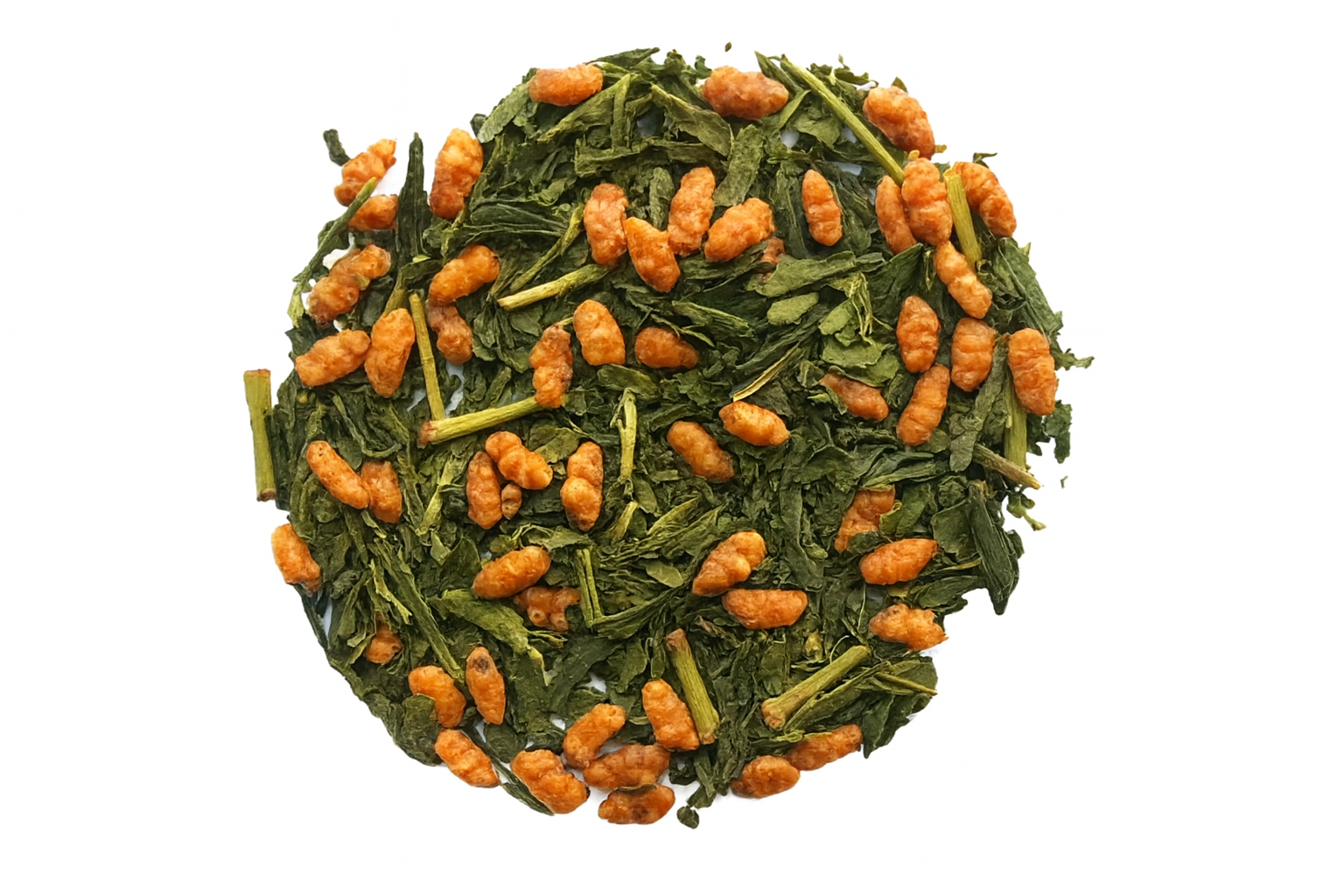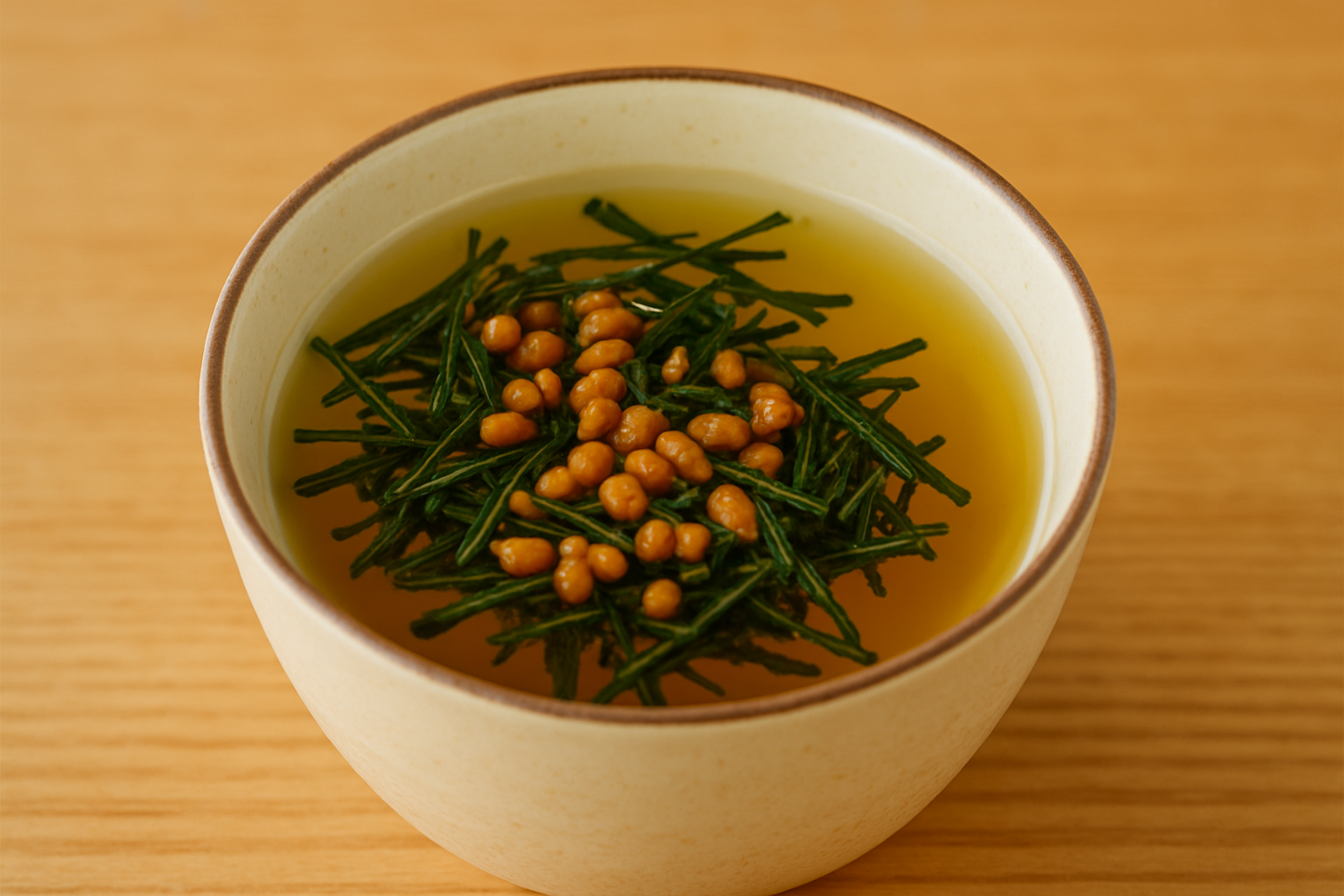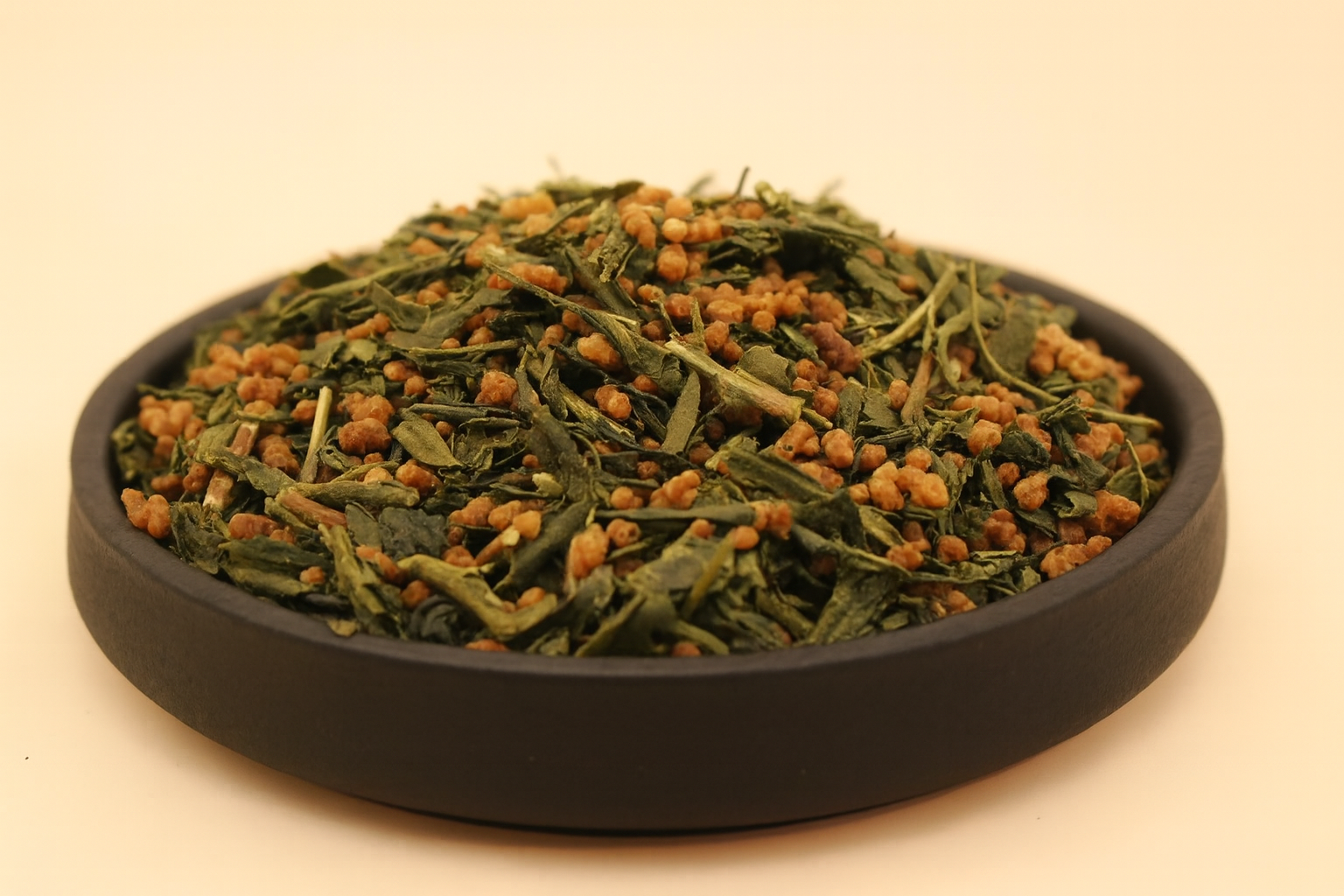Genmaicha
Toasty, nutty, and smooth — the “people’s tea” of Japan.
- Category: Green tea blend (typically sencha or bancha with roasted rice)
- Origin: Japan — historically enjoyed across Kyoto, Shizuoka, and other major tea regions.
- Harvest: Usually made from second harvest (nibancha) or later bancha leaves; sencha is sometimes used for higher grades.
- Grade: Standard Genmaicha (bancha + rice); Premium Genmaicha (sencha + rice); Matcha-iri Genmaicha (with added matcha for vibrant color and depth)



Tasting Profile
Brewing Guide
- Tea-to-water ratio~5 g tea blend per 200 ml water.
- Water temperature80 °C (176 °F) for sencha-based; up to 85 °C (185 °F) for bancha-based.
- Steeping time60–90 seconds for first infusion.
- Infusions2–3 infusions possible; later steeps highlight roasted rice more than the green tea base.
Background & Story
Genmaicha is a uniquely Japanese tea blend that pairs green tea leaves with roasted brown rice. Its name literally means “brown rice tea,” and it has long been cherished for its comforting flavor and accessibility. Unlike pure green teas such as sencha or gyokuro, genmaicha combines grassy freshness with warm, nutty notes from roasted grains, creating a drink that is both satisfying and soothing.
The origins of genmaicha trace back to centuries ago, when tea was considered a luxury for common households. To make precious green tea last longer, people began mixing it with roasted rice, a staple food that was always on hand. This practice lowered the cost while adding a filling, roasted taste. Over time, genmaicha gained popularity not only among the working class but also across Japanese society as a daily tea known for its mildness and balance.
The rice itself plays a central role in the character of genmaicha. When roasted, some kernels pop, resembling popcorn, and release a sweet, toasty aroma. This flavor softens the sometimes sharp or bitter notes of bancha or sencha leaves, making genmaicha one of the gentlest teas on the stomach. Because of this smooth quality, it is often served to children, the elderly, and those who prefer lower caffeine teas.
Modern variations have elevated genmaicha even further. Premium versions use sencha as the base instead of bancha, resulting in a brighter, more refined flavor. Another popular style is matcha-iri genmaicha, which includes a dusting of matcha powder for a richer green color and added umami. These blends maintain the tea’s humble roots while appealing to modern tastes.
Today, genmaicha is enjoyed both traditionally and in contemporary forms — hot, iced, or as a base for lattes. Its enduring popularity lies in the way it marries everyday comfort with the refined culture of Japanese tea.
Benefits
- Gentle on the stomach with reduced bitterness compared to pure green teas
- Provides antioxidants and polyphenols that support overall wellness
- Lower caffeine content, making it suitable for children and evening drinking
- Warm roasted rice adds comfort and may aid digestion after meals
- Balances energy and relaxation, offering a smooth daily tea option
Serving Suggestions
Pairings
- Light Japanese meals such as grilled fish and rice
- Simple rice crackers (senbei) or onigiri (rice balls)
- Vegetable tempura for a balanced fried-and-fresh pairing
- Mildly sweet wagashi (traditional Japanese sweets)
- Roasted nuts or sesame snacks for complementary nuttiness
Teaware
- Kyusu (Japanese side-handle teapot)
- Yunomi (Japanese tea cup)
- Tea canister (Chazutsu)
Nutrition Facts
Serving Size: 1 cup brewed Genmaicha (240 ml)
| Nutrient | Amount per Serving | % Daily Value* |
|---|---|---|
| Calories | 0–2 | 0% |
| Total Fat | 0 g | 0% |
| Sodium | 0 mg | 0% |
| Total Carbohydrates | 0–1 g | <1% |
| Protein | 0 g | 0% |
| Vitamin C | 2–4 mg | 3–5% |
| Vitamin A (beta-carotene) | Trace | <1% |
| Calcium | 2–4 mg | <1% |
| Potassium | 20–30 mg | <1% |
| Magnesium | 1–3 mg | <1% |
| Caffeine | 10–15 mg | — |
| L-theanine | 4–6 mg | — |
| Catechins (EGCG) | 15–30 mg | — |
| Polyphenols | 40–60 mg | — |
| Chlorophyll | Present (lower than sencha) | — |
**Percent Daily Values are based on a 2,000 calorie diet.
† Compounds such as caffeine, L-theanine, catechins, polyphenols, and chlorophyll do not have established %DV but are important to Genmaicha’s gentle health benefits.



